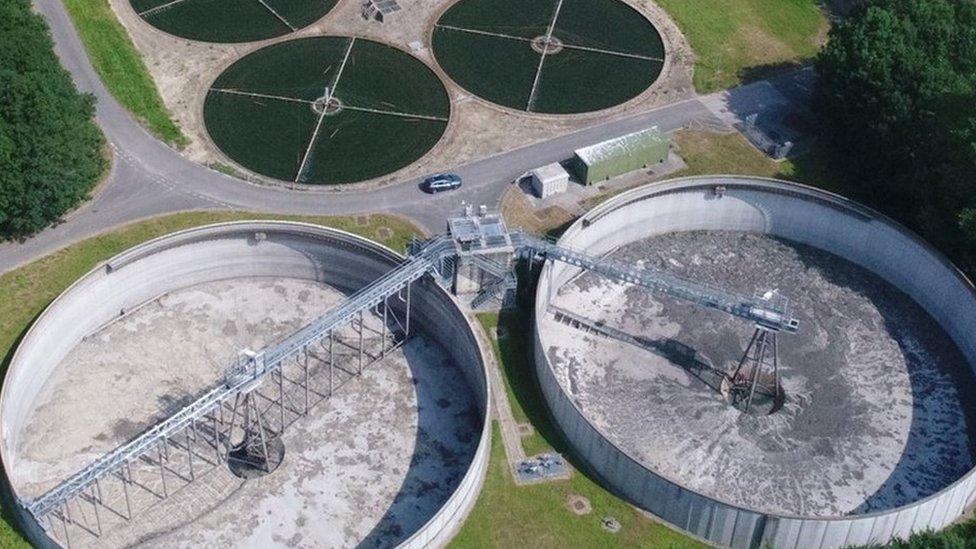Wessex Water drive to improve Salisbury groundwater quality
- Published
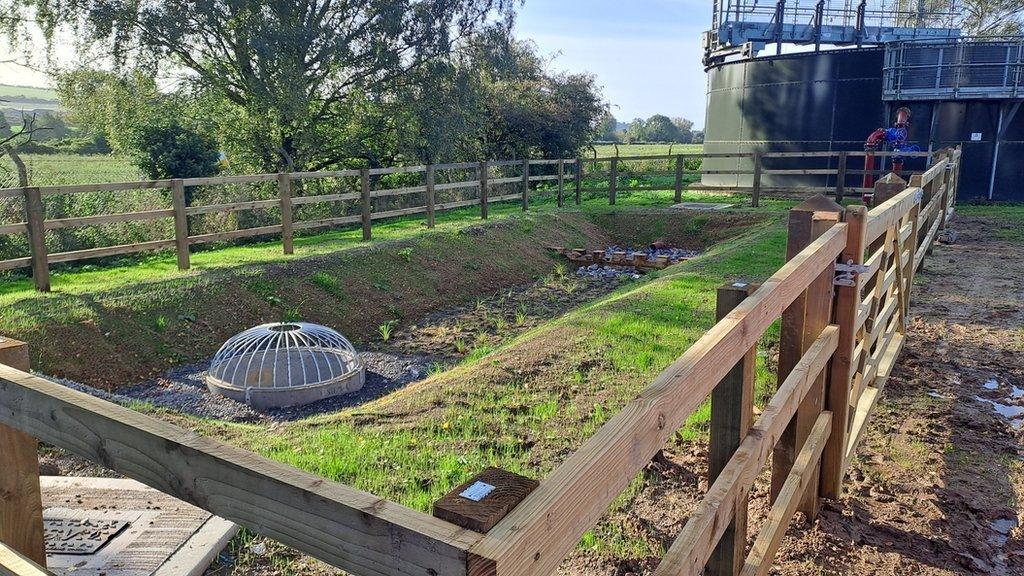
Overflows will pass through the bio-swales, where plants and micro-organisms in the soil get to work to improve the water quality
A series of innovative ecological projects costing about £500,000 are underway to protect local waterways.
Wessex Water is trialling 'bio-swales' near Salisbury in Wiltshire to reduce the impact of excessive groundwater on the nearby environment.
Craters of between 12 and 20 metres long have been dug at four rural water recycling centres, then lined to prevent contamination.
Project manager Al Barlow said they expect them to be "live" by the autumn.
It is hoped the nature-based solutions will help to improve the quality of water being returned to the tributaries.
'Sealing our systems'
Marginal plants that are accustomed to growing in water have been planted in the swales, which will improve the quality of the water before it discharges into a watercourse.
Three of the sites, near the villages of Fovant, Barford St Martin and Hurdcott, have already been planted, with a fourth at Great Wishford currently being completed this month.
Mr Barlow said: "We have chosen these sites for the trial because it helps to build on our existing programme of sealing our systems to prevent groundwater infiltration in this area of Wiltshire, which can cause storm overflows to operate automatically."
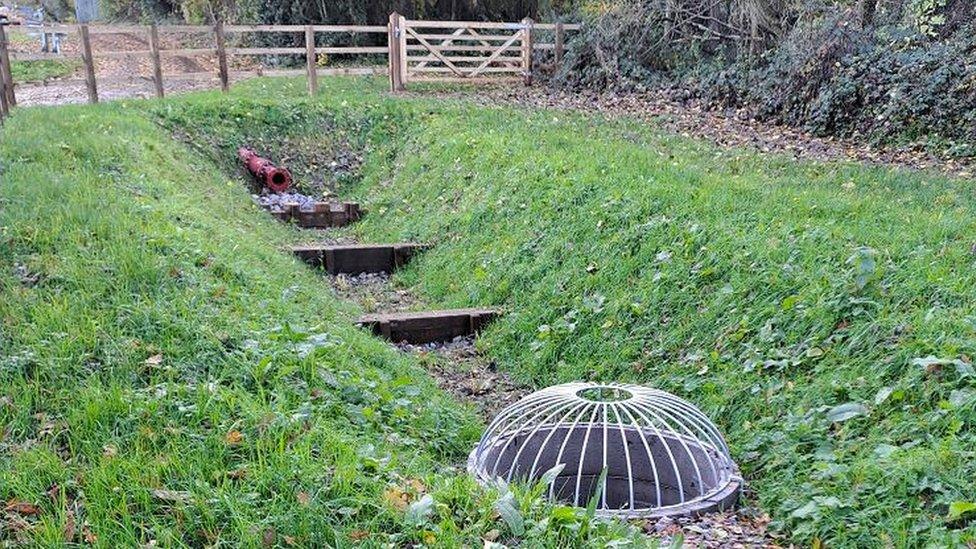
It is hoped small, nature-based schemes will improve storm water discharge quality at rural sites
The bio-swales will be fully commissioned once the plants have been allowed to mature for several months to ensure their roots are strong enough to deal with storm water overflows.
It means that after a storm, any overflows from the storm storage tanks at the sites will pass through the swales, where the plants and micro-organisms in the soil get to work to improve the water quality.
Senior environmental scientist, Lorraine Isgar, said: "We're hopeful that all of these will specifically address storm water overflows in areas where there is high groundwater infiltration and sample monitoring of them will continue to help with the design of future projects."
Wetlands schemes are also being planned with Wiltshire Wildlife Trust and other community groups.
Wessex Water's proposed Business Plan, external for 2025 to 2030, also includes the design and construction of over 30 large wetland schemes across the region to provide treatment to groundwater induced storm overflows. The plan is currently being considered by industry regulators.

Follow BBC West on Facebook, external, X, external and Instagram, external. Send your story ideas to: bristol@bbc.co.uk , external
- Published7 January 2024
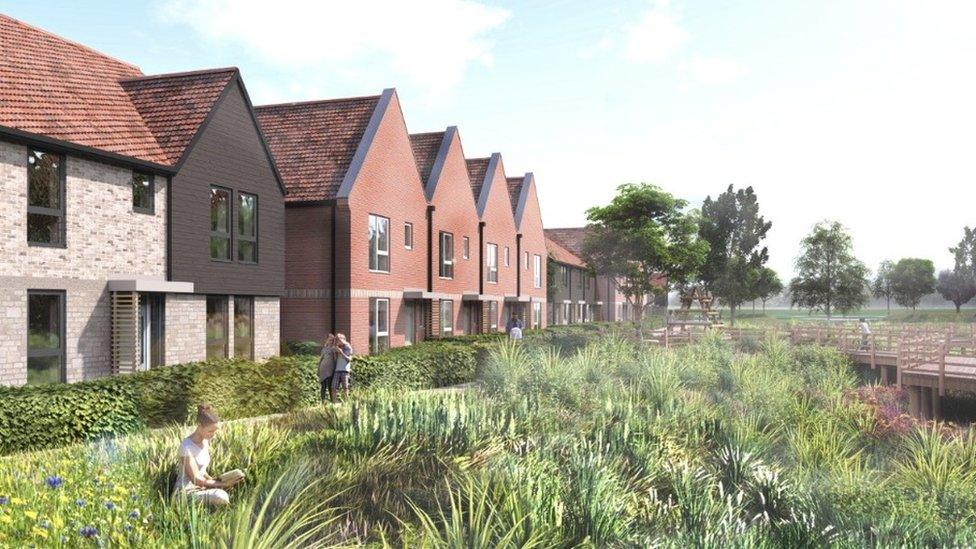
- Published18 January 2024
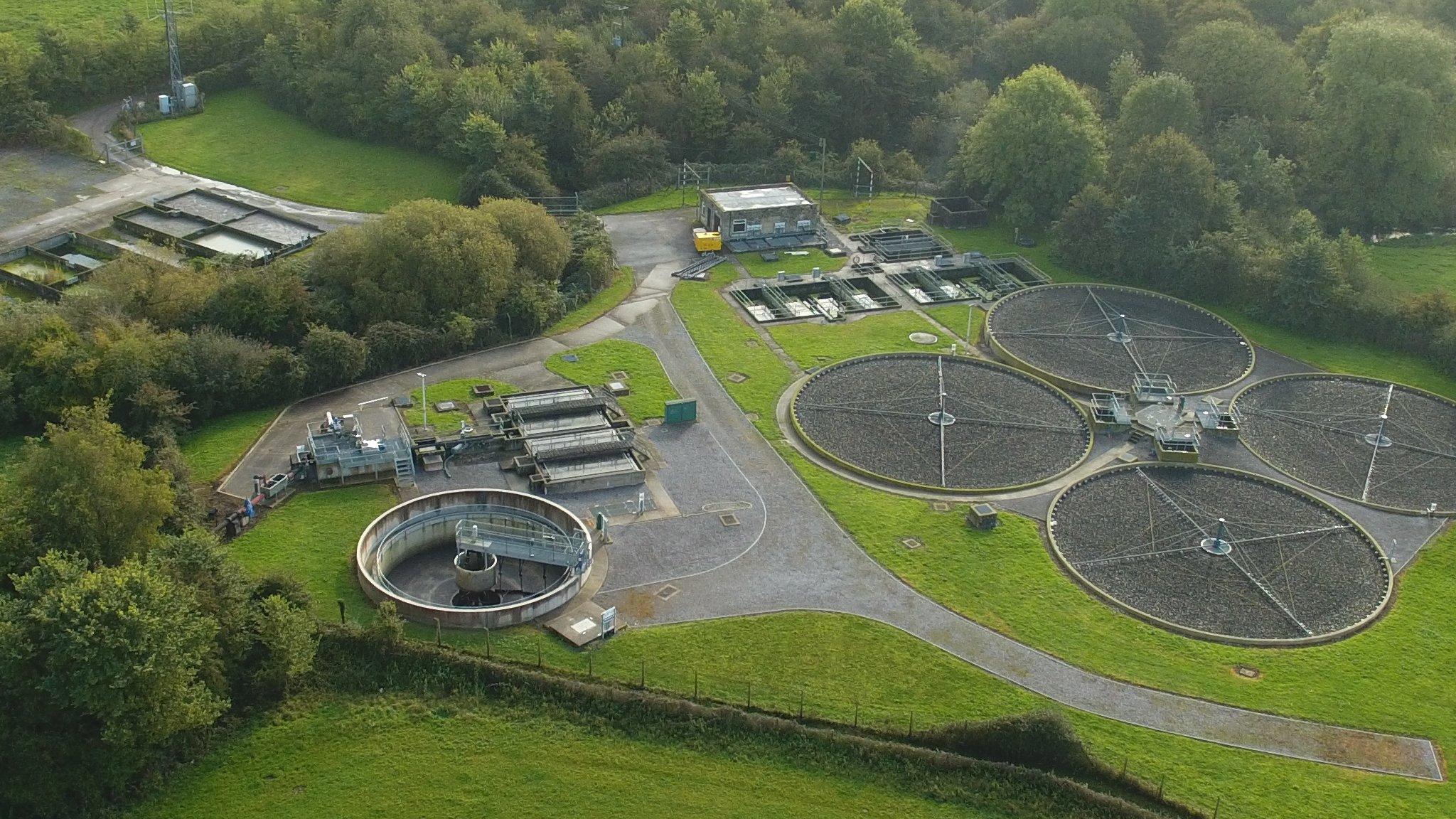
- Published13 May 2022
